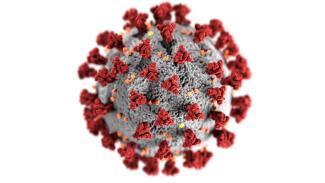Scholars from the University of Ghana Business School weigh the implications of lockdowns responding to the global pandemic against the long-term economic wellbeing of citizens in the developing world.

In response to the outbreak of the novel coronavirus (COVID-19), states around the world have elevated health concerns to the level of national security and most have instituted extraordinary measures, including restrictions on movements. Within security studies, the process by which health concerns such as COVID-19 are assigned security status and corresponding attention, including budget preferences, is aptly explained through a process known as securitization. This involves a security actor who engages in a speech act to convince an audience about an existential threat posed by a particular phenomenon to a referent object. Securitization is deemed successful when the audience believes the phenomenon is an existential threat, thus, allowing the space for the deployment of emergency measures.[1] Following the detection of COVID-19 cases in Ghana, the president announced a suite of responses including the closure of the country’s borders to human traffic, mandatory quarantines, and other specific actions to trace and test persons deemed to have come into contact with infected people. Further, under the Imposition of Restrictions Act, 2020 (Act 1012), the president announced restrictions on movement (lockdown) in some identified infection hotspots within Accra, Tema, Kasoa, and Kumasi, for an initial period of two weeks starting on March 30, 2020. This was subsequently extended by another week. While the public has been generally responsive to measures, we argue that in the medium to long term, the sustainability of the restrictions will be dependent on the public’s access to economic security.
COVID-19 Restrictions Could Worsen Hunger in Developing World
In a recent publication by the World Economic Forum on how coronavirus could worsen hunger in the developing world, Dongyu Qu, director-general, Food and Agriculture Organization (FAO) of the United Nations, avers that in some African households, the closure of schools means an end to the only hot meal school-going children are guaranteed in a day.[2]
This is undeniable. What is debatable, however, is his recommendations for governments to “keep trade routes open and supply chains alive even as they prioritize public health goals.” With the size of the informal economy in most African countries, the big question on hunger has less to do with the availability of supplies and more to do with the level of economic security—colloquially explained as the capacity of individuals and household to provide for their basic needs through income from productive work or some government-assured remittance. It is granted that the reverse will also be hugely problematic; however, the focus on economic insecurity holds far more dire consequence for stability and national security, as with time people invariably feel sequestered by the central government from pursuing activities that yield income.
Is Economic Security Redeemable?
Ghana's Enhanced Response to the Coronavirus Pandemic is aimed at achieving five key objectives, namely: limit and stop the importation of the virus; contain its spread; provide adequate care for the sick; limit the impact of the virus on social and economic life; and inspire the expansion of domestic capability and deepen self-reliance.[3]
In the context of economic security, interventions targeting the fourth objective have included directives relating to the state’s absorption of water bills for all Ghanaians for April, May, and June; mobilization of public and private water tankers to supply water to vulnerable communities; absorption of electricity for various categories of users at various rates; and the establishment of the COVID-19 Fund. Representatives of the government have indicated that, apart from supporting industries and enterprises, these measures are also aimed at providing relief to households for lost income. Furthermore, through the National Disaster Management Organization (NADMO), as well as Metropolitan, Municipal, and District Chief Executives (MMDCEs), food items have been distributed to some vulnerable communities. This has been complemented by the benevolent activities of private citizens and faith-based organization.
The recognition of restrictions on economic security engendered by the COVID-19 response in Ghana and the planned interventions are notable and could be the envy of many countries across the continent. Nevertheless, in the medium- to long term, such support mechanisms are not likely to support the securitized threat and, by extension, the response mechanisms. This forecast is not peculiar to Ghana. In fact, it will most likely be the scenario should COVID-19 continue in countries with the large informal sector, where considerable numbers of the population derive their economic security from activities undertaken daily and for whom restriction of movement is essentially a proscription of the fundamental source of income. While the government can stem the tide, the current interventions justifiably exclude other components of economic security such as investments for education, health, and shelter. Therefore, should the lockdown enter a long-term mode, individuals and groups that would deem their free movement as offering the opportunity to consolidate their economic security will likely reconsider the effect of the lockdown. With expected job cuts and economic readjustments expected worldwide, Ghana not being an exception, a long-term lockdown will also widen the bracket of economically insecure people. This will increase the number of people averse to the restrictive lockdown, irrespective of the existential threat posed by COVID-19.
Expectations for National Security: So Far, So Good, But….?
Should the lockdown stretch to the medium- to long term, the pursuit of economic security would override the securitization of COVID-19 and attendant response mechanisms. The consequences of this would likely be an increase in individual violations of lockdown rules. With time this could aggregate into group violations that would deepen de-securitization of COVID-19m thereby obliterating what serves as the foundations for public support of the government's response. This could throw a wedge into Ghana's national security projections.
[1] Buzan, Barry; Wæver, Ole; de Wilde, Jaap (1998). Security: A New Framework for Analysis. Boulder, Colo.: Lynne Rienner Pub.
[3] Updates on Ghana's Enhanced Response to the Coronavirus Pandemic. Available at http://www.presidency.gov.gh/index.php/briefing-room/speeches/1546-pres…

